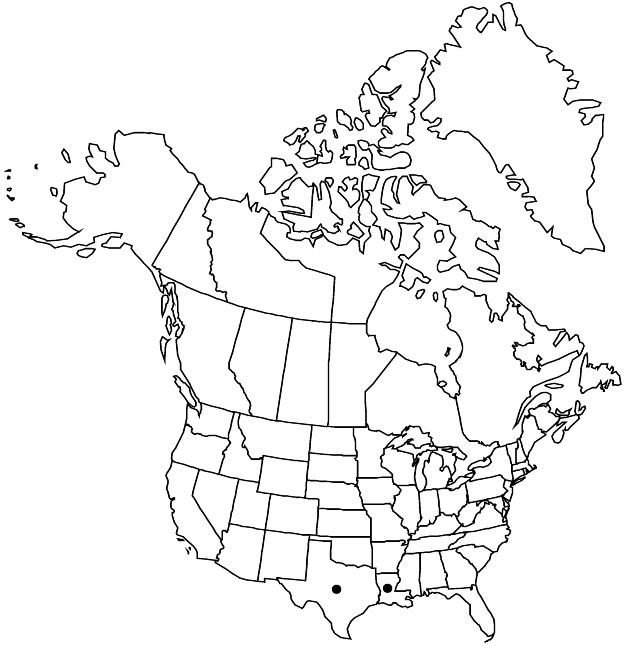Linum alatum
in H. G. A. Engler et al., Nat. Pflanzenfam. ed. 2, 19a: 116. 1931.
Herbs, annual or short-lived perennial, 10–40 cm, scabrous or puberulent at base, otherwise glabrous. Stems spreading to suberect, branched at base. Leaves opposite near base or alternate throughout, divergent to widely ascending; stipular glands present; blade linear to narrowly linear-lanceolate, 10–30 × 1–3 mm, margins entire, ciliate, apex apiculate. Inflorescences panicles; bracts with irregular scarious margins. Pedicels 3–8 mm, stout. Flowers: sepals deciduous, inner sepals somewhat shorter than outer, regularly and delicately glandular-toothed, outer sepals ovate or obovate, 6–8 mm, margins widely scarious, undulate or crenate, with sessile gland near apex of each crenation, apex conspicuously aristate; petals yellow, grading to reddish near base, obovate, 9–18 mm; stamens 5–8 mm; anthers 1–2 mm; with or without staminodia; styles connate nearly to apex, 5–10 mm; stigmas capitate. Capsules ovoid, 3.5–4.5 × 3–3.8 mm, apex obtuse, dehiscing into 5, 2-seeded segments, segments persistent on plant, false septa incomplete, united more than halfway, proximal part membranaceous with basal, 5-sided cartilaginous plates, distal part cartilaginous, constituting more than 1/2 of false septum, margins not ciliate. Seeds 2.3–2.8 × 1–1.3 mm. 2n = 30
Phenology: Flowering Mar–Sep.
Habitat: Open sandy areas, beaches.
Elevation: 0–300 m.
Distribution

La., Tex., Mexico (Tamaulipas).
Discussion
Linum alatum has broadly funnelform corollas that are deep yellow distally, grading through a diffuse pale wine red band of color, the red color extending along the petal veins. The filaments, anthers, styles, and stigmas are yellow. The distinct portions of the styles spread at nearly right angles to the style axis, and the styles are sometimes eccentric. The unique gland-tipped crenations of the sepal margins set L. alatum apart from other species. Its thick pedicels and thickened cartilaginous areas on the capsule also are distinctive. The stems of L. alatum are smooth proximally, strongly ribbed distally. The species occurs in Texas in the east-central, Gulf, and southern mesquite plains regions (and adjacent Tamaulipas) with one historical record from southwestern Louisiana.
Selected References
None.